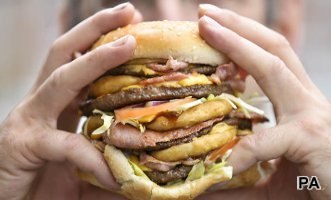With obesity rates at 35% among US adults and weight-related health problems on the rise, many of us feel like we need to slim down. But even adults with a healthy physique feel under pressure to lose the pounds as we are bombarded with images of what the ‘perfect’ body should look like.
Many doctors are urging patients and health regulators to do something about America’s weight issues. A new weight-loss pill, Belviq, was recently approved by the US Food and Drug Administration. The drug, which is expected to launch in 2013, helped people lose on average 5% of their body weight during clinical trials.
The weight issue in the US is a contradiction in itself. We have an obesity epidemic on the one hand, and an unhealthy obsession with weight on the other. To demystify our relationship with weight, YouGov has conducted a survey to uncover how Americans perceive their own bodies. We’ve looked into how people feel about their weight, how many of us feel we need to drastically downsize, and what our most common weight loss pitfalls are. The results certainly gave us food for thought:
- A confident 21% say they are perfectly happy with their weight
- 68% want to lose weight to some degree
- Of those who wanted to lose weight, 36% want to lose more than 30 pounds
- Lack of motivation to exercise is the most popular weight loss challenge (46%)
- 65% said they are a negative influence on how they think about their weight
- The press is a negative influence for 10% of respondents in terms of their weight
The biggest portion of respondents (40%) said that they are generally happy with their weight, but felt that they wanted to lose a few pounds. A further 21% said they were perfectly happy with their weight – this indicates that most of us (61%) have a healthy relationship with our weight and positive approach to diet and exercise. However, 28% responded that they are unhappy with their weight and wanted to be slimmer – according to the US Department of Health and Human Services, 35% of Americans are obese – which suggests some of us who need to lose weight simply don’t feel the need to.
We also found that women are more self-conscious about their weight than men. More men than women responded that they are happy with their size – but for all the respondents who would change their weight, women outnumbered men.
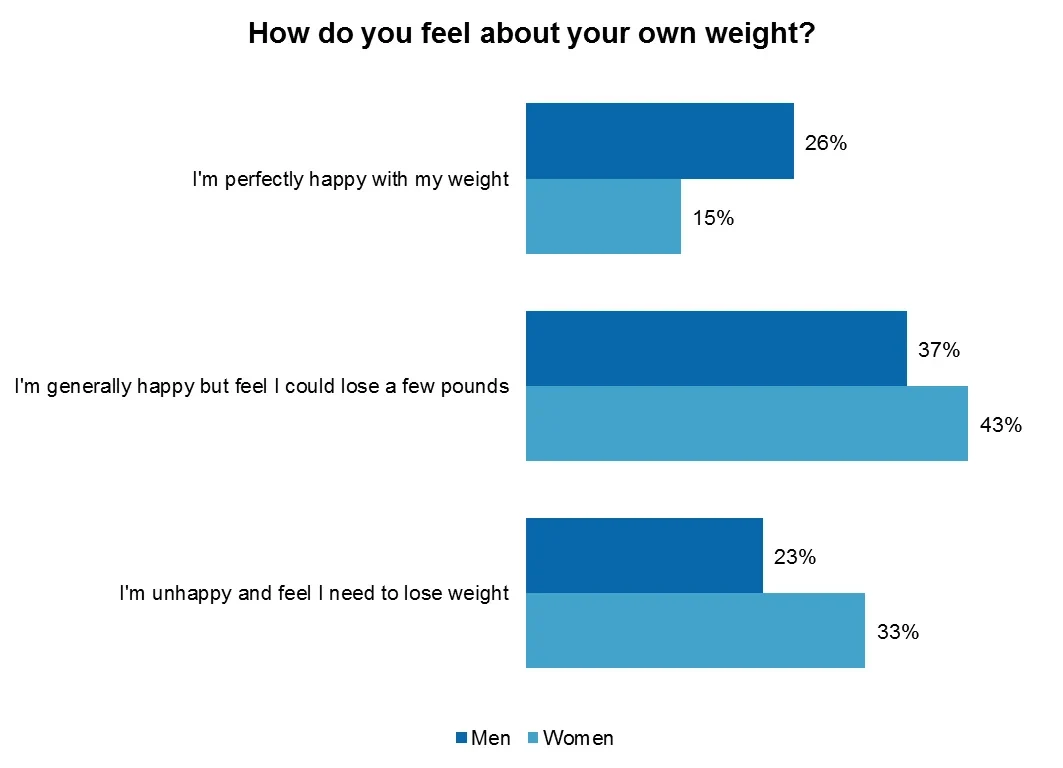
Of the 68% of respondents who want to lose weight, 36% are keen to lose more than 30 pounds – this represents more than the weight of a 2-year-old child, a microwave, or 3.6 gallons of water. Adults are considered obese if they are roughly 30 or more pounds over a healthy weight; therefore this response is in line with national obesity rates.
Negative attitudes – most say it stems from themselves
We are our own worst enemies as 65% identified themselves as having the most negative influence on how they think about their own weight. Apart from our partners (6%), friends and family can be the main source of bad feelings about weight for 8% of respondents. The press – including magazines, newspapers, commercials and billboards – had the most negative influence for 10%.
And 4% said their own doctors had the most negative influence on how they think about their weight. Celebrities were another common source of body worries – 3% of respondents said they have the most negative influence on how they think about their own weight.
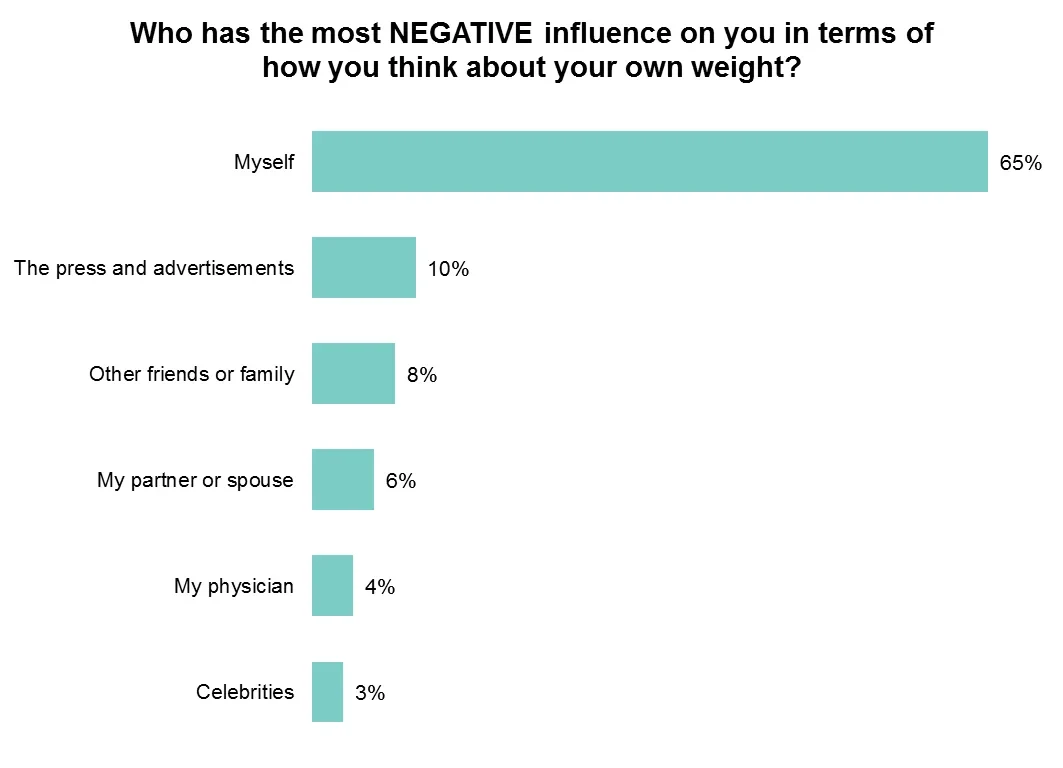
Younger people were more likely to be influenced by outside sources such as celebrities and the media than older people were in terms of negative thoughts about their own weight. Negative influences are broken down by age here:
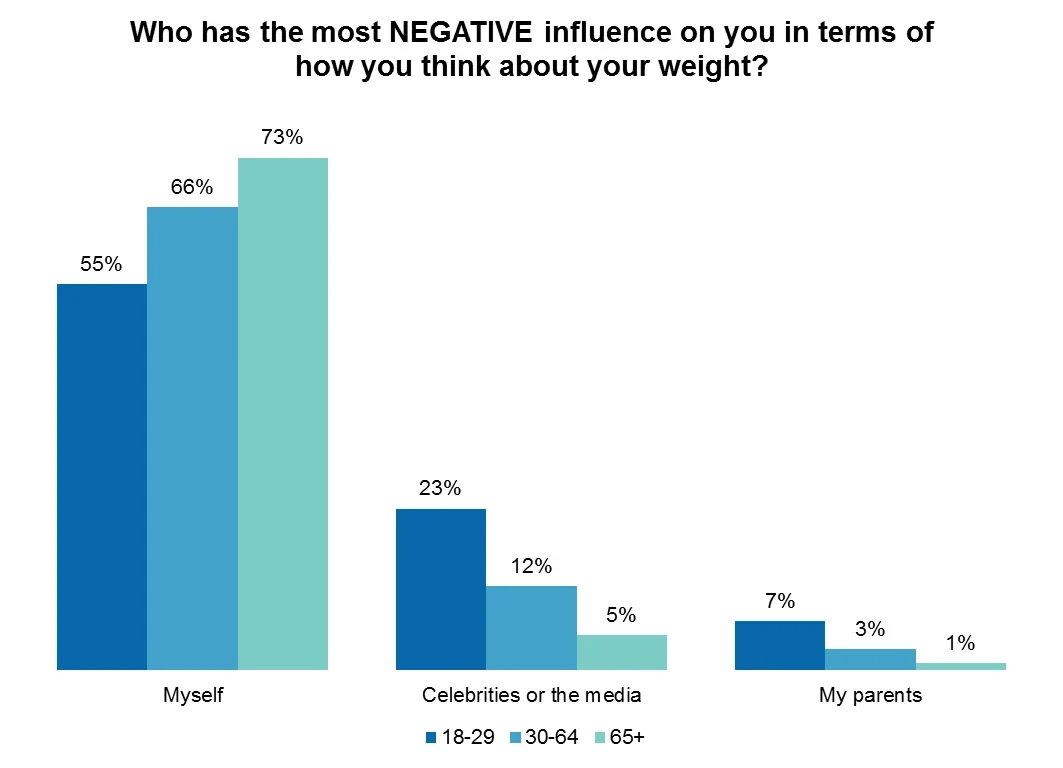
We’re not motivated enough to lose weight
We’ve all heard how yo-yo dieting and fast, unhealthy foods are making the nation fat. Losing weight can be an uphill struggle when there aren’t enough hours in the day to exercise and healthy eating can’t match up to the temptation and convenience of high-calorie snacks. So what is the most common pitfall for people trying to lose weight?
Most respondents who want to lose weight say they lack the motivation to exercise (46%). 23% said the fact they cannot afford to go to the gym is the biggest challenge they face when trying to shed the pounds. Food is the biggest vice for the many of us – 36% will comfort eat, 22% find healthier foods unsatisfying and 12% admit to binge eating when no one is looking.
Friends, family members and colleagues are a bad influence for 9% of people who want to lose weight – and 18% claim that being overweight running in their family is the biggest barrier to weight loss. For 20%, the fact that they do not feel any urgency to lose weight is a challenge in itself.
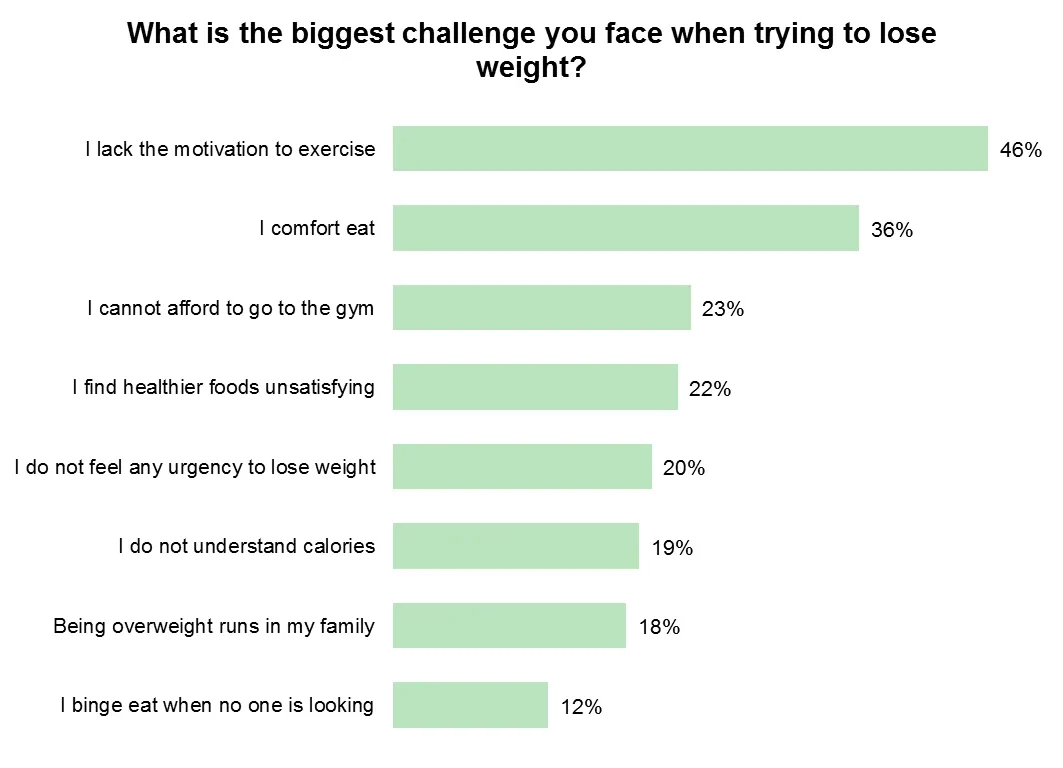
One last point is that being healthy isn’t just about weight loss – as 6% who responded that they want to put on weight are a reminder. Although this survey wasn’t a medical study of any sort – it simply looked into our perception of weight – it has proved that there is an awareness of the need to lead a healthier lifestyle. And with more motivation, many of us can.
